gave International Religious Freedom (IRF) Summit met last week to explore ways to help promote religious freedom in Washington, DC. social media platforms and stop the spread of hate and misinformation at the same time.
Paolo Carozza, who sits on the Meta Oversight Board and a speaker at the conference, told Fox News Digital that he was pleased to see Meta’s participation and presence at the IRF Summit.
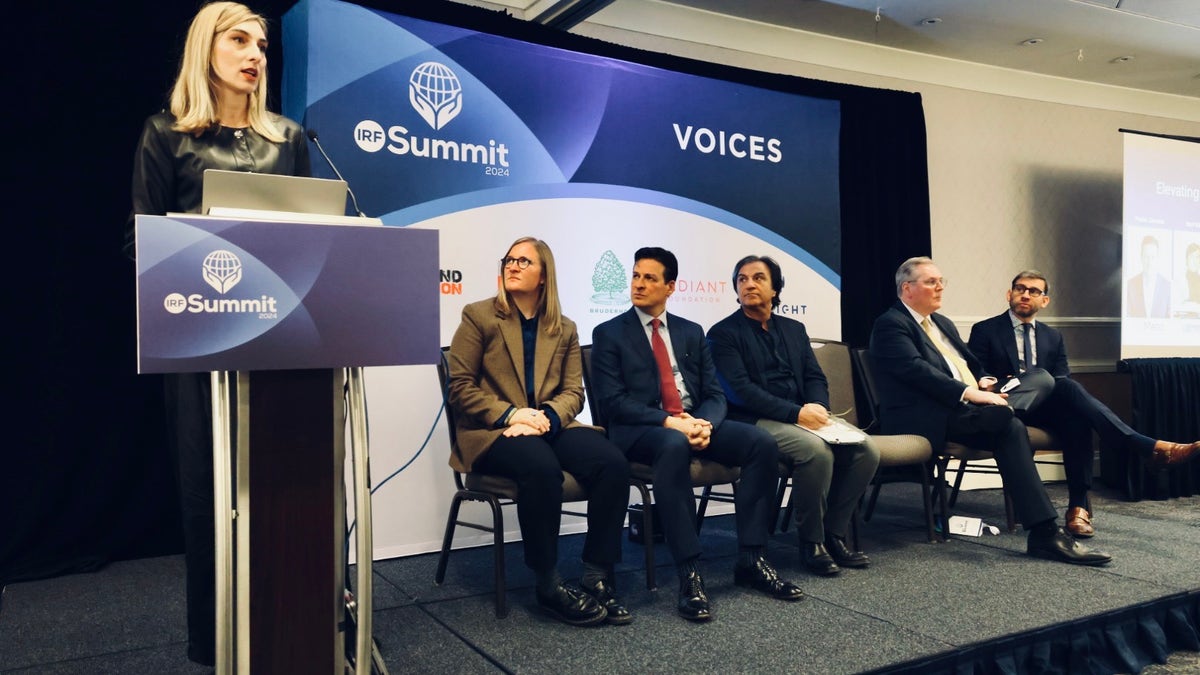
“Elevating Forgotten Voices in the Media” panel session at the International Religious Freedom Summit, featuring Paolo Carozza, who sits on the Meta Oversight Board. (Matt Ribe)
“What the Oversight Board is trying to do is basically have reasonable standards of free speech but be accountable for how they run their content… I think for them to be there. was really important because … freedom of religion is very deep. It affects how social media is moderated and … what’s on the platforms and what’s not,” he said.
It’s a double-edged sword when it comes to international religious freedom, says Lou Ann Sabatier, Sabatier Consulting principal and co-founder of the FoRB Women’s Coalition.
“There are so many great things happening here… the connection between closed communities that are trying to survive. Their faith in some ways. Secondly, raising awareness, “referring to the Rohingya in Burma”. “When the genocide started in Burma, when the rebellion happened and (Burma)… people understand that it’s not just political, it has religious implications for the Muslim (population). And using what they were doing have been. social media To promote that this is happening and warn each other and protect each other,” Sabatier said.
At the same time, he added, “Harmful practices range primarily from social media, using it for hate speech, or some form of divisive or disinformation campaigns…which are often Offline behavior leads to… whether it’s mob violence, someone being arrested, someone (being surveyed)…Human rights Online are just as important as they are offline.”
Tech experts say social media companies are not ready to hijack Hamas platforms
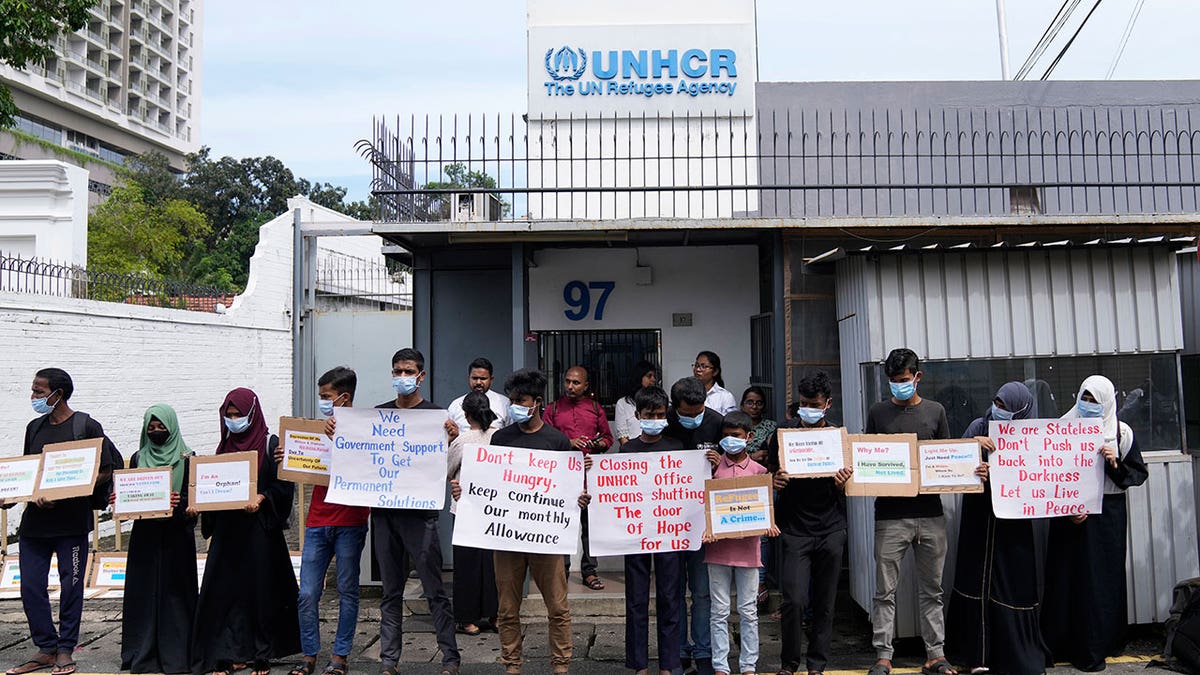
Rohingya refugees protest outside the office of the United Nations Refugee Agency on January 2, 2024 in Colombo, Sri Lanka. (AP Photo/Iranga Jayawardene)
Before it was banned in October 2023, the Hamas terrorist group Gaza Now had more than 4.9 million followers on Facebook. The New York Times.
Carozza says Metta overcame a conundrum with the posting Hamas attacks On October 7, 2023, regarding the spread and incidence of terrorism.
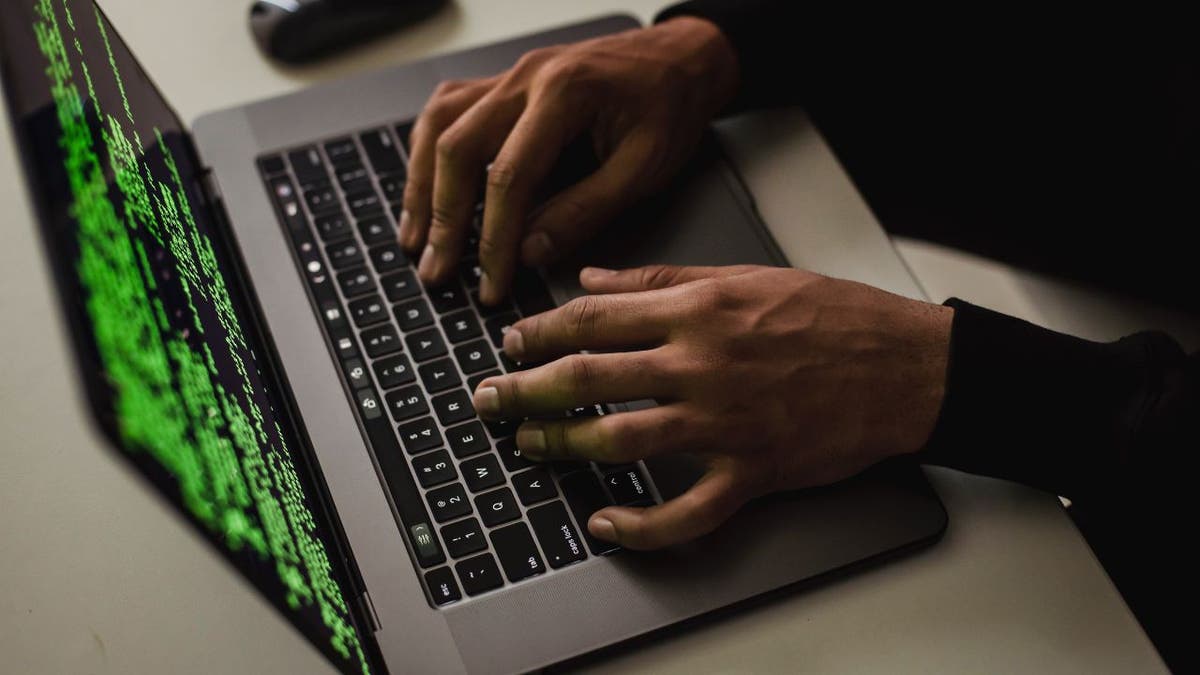
Many hackers have taken advantage of the conflict between Israel and Hamas. (CyberGuy.com)
“Meta concerns Changed their algorithm to be more restrictive about things like graphic violence or glorification of terrorism. And what we found… the result was that legitimate information about what was happening in the conflict and what happened to the hostages was removed in a very disproportionate way. So, you know, we decided in those cases that they had to allow a lot of content back on the platform,” he said.
Carozza added, “We all recognize that there needs to be standards for restrictions on bad content. Oftentimes, we’ve kind of sided with restoring, removing or protecting content. This is because, Freedom of expression It’s critical to understand and respond to what’s going on in these contexts.”
North Korea, China, Iran, Iraq, Myanmar, Pakistan, Turkmenistan, Russia, Saudi Arabia, United Arab Emirates, Belarus, Cuba, Qatar and Syria are among the countries that ban or heavily restrict social media. . Committee to Protect Journalists.
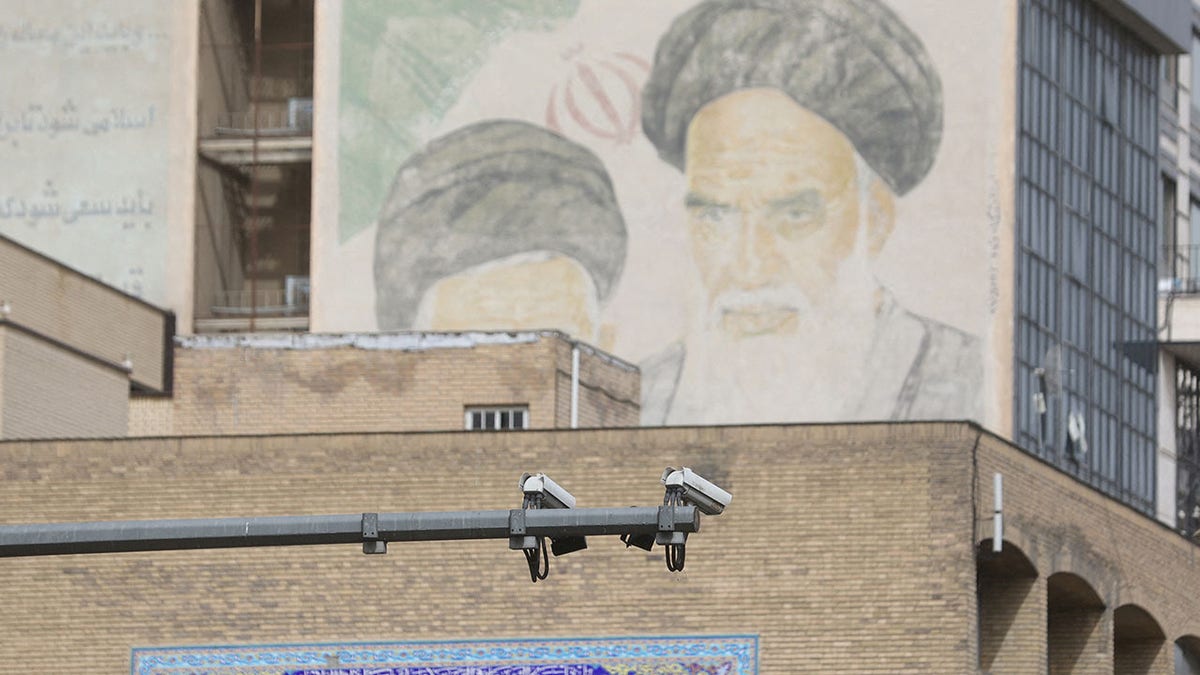
CCTV cameras are seen on a street in Tehran, Iran on April 9, 2023. (Majid Asgharipour/West Asia News Agency via Reuters)
“I think we have to pay special attention to the roles that governments and authoritarian regimes are playing … they’re trying to use a shutdown of the Internet or try to impose certain standards on tech companies that would allow them to “allowing the forms to be used as surveillance tools and, monitoring and warning of political and religious opposition,” Caroza said.
He added, “We need to be very vigilant about the links between governments and platforms. And try to be completely transparent about it so that people are aware so that they can respond, they Criticize so that civil society can organize and healthy democratic governments can respond appropriately.
China, Russia Behind Largest Cross-Platform Disinformation Operation, Meta Report Finds
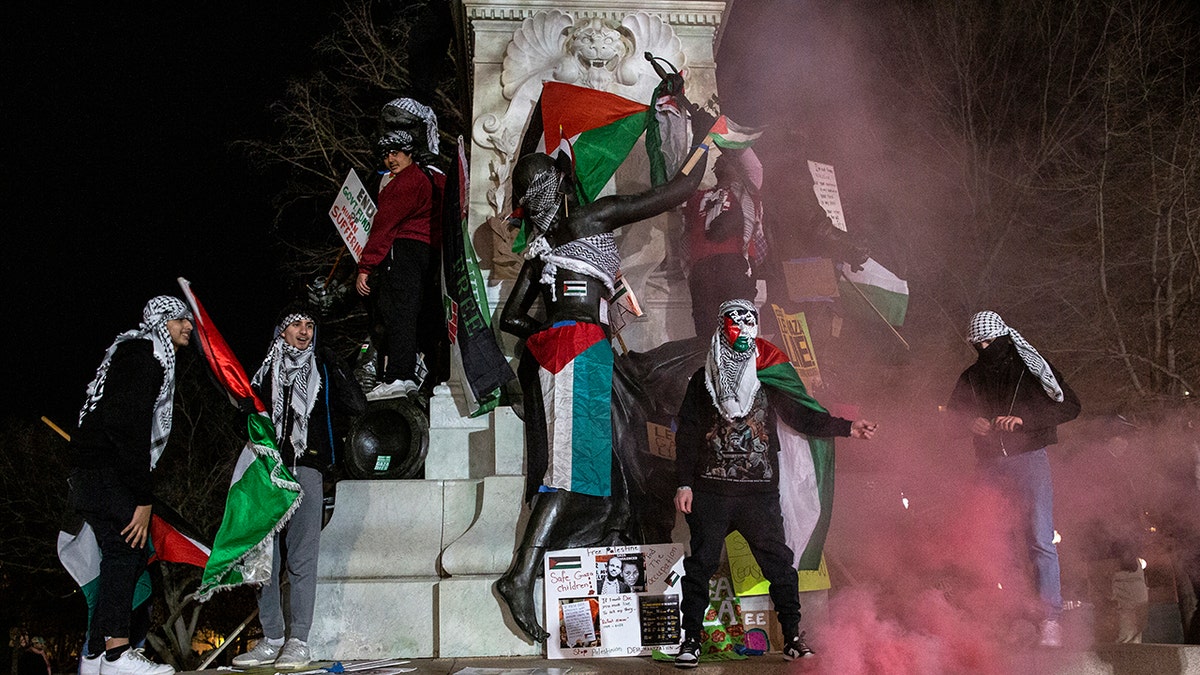
Pro-Palestinian activists release red smoke and chant slogans during a demonstration in Lafayette Square near the White House on January 13, 2024 in Washington, DC. (Probul Rashid/Light Rocket via Getty Images)
Sabatier cited the negative effects of social media and religious freedom and the lack of promotion as a major problem.
“There are groups that are dedicated just to studying hate speech… there are some NGOs, but people are writing books. But guess what… they’re not cooperating. That information comes from academia or tech companies. How does it get out of the bubble and into religious freedom? Or into government officials?” Sabatier said.
The solution, she says, is that “we need a task force of people working and sharing that information, it doesn’t bounce back into communities, (we) need to get it to faith leaders on the ground.” Trusted people in any community.”